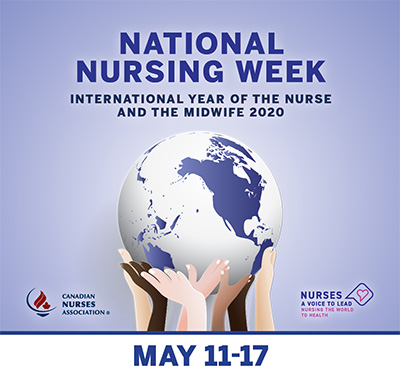The small things meant so much to Francis Macapagal – a nurse bringing him a bottle of Gatorade from home over concern he wasn't eating or drinking; the team on the unit offering him a meal to take away as he was being discharged; the efforts to ensure his parking bill was paid when he left.
Six days after COVID-19 forced him to go to the Emergency Department at Toronto Western Hospital (TWH) and then be admitted, Francis walked out of Unit 8B well on his way to recovery – with profound gratitude toward his entire care team, and newfound appreciation for his profession.
"I was really taken aback by how caring and compassionate everyone was," says Francis, a registered nurse at the Hospital for Sick Children (SickKids) for 15 years, the past eight in palliative care.
Francis was at home, self-isolating after returning from a work trip abroad, when he took ill. After nearly a week of body aches, fever and chills, he was diagnosed with COVID-19. A few days later, with shortness of breath, he went to TWH a few blocks from his home, driving his car after concluding with his caseworker at Toronto Public Health it was the best way to limit the risk of infection spread.
During his hospital stay, which he calls "the scariest time in my life," Francis went on oxygen and feared he would need a breathing tube. He was sick. He was frightened. He was alone.
But through it all, he says, the care team supported him despite the stress of an anticipated surge in patients, always wearing personal protective equipment and trying to avoid infection themselves.
It culminated when all staff on the unit stood and applauded as he walked out to go home.
"I never would have expected that, but it meant the world to me," Francis, who has been out of the hospital little more than a month, says of the impromptu standing ovation on discharge day.

"I think it was probably a moment of pride for them as well. As a nurse, I know the feeling you get when someone came in sick and you helped them get well."
200th anniversary of Florence Nightingale's birth
May 11 to 17 is National Nursing Week in Canada. Since 1985, it's been marked to coincide with May 12, the birthday of Florence Nightingale, the Englishwomen who is considered the pioneer of modern nursing due to her organizing of care for wounded soldiers during the 1850s Crimean War.
This year's recognition was always going to take on added significance as the 200th anniversary of Florence Nightingale's birth and the World Health Organization declaring 2020 the Year of the Nurse.
"Nurses: A Voice to Lead – Nursing the World to Health," is the theme in Canada this year.
But the global pandemic has thrust nurses into the spotlight. Typically in the background, their professionalism and courage in this unprecedented battle has seen them – along with other frontline healthcare employees – recognized as heroes and celebrated for the vital work they do every day.
"Nurses have been leaders in this fight, just as we always have been," says Dr. Joy Richards, Vice President of Health Professions and Chief Nurse at UHN. "We have shown resilience, strength and courage in a way that has been admired and given hope to our colleagues, patients and families and the general public.
"It is what we have always done, and we have shown what our caring strength can accomplish."
'When you're a patient, you're still a nurse as well'
At UHN, nurses work in a wide range of roles on interprofessional teams. Their duties span primary, acute and long-term care, rehab, outreach programs and international work, to name only a few. There is no area of healthcare that functions without nurses playing a key role.
On Unit 8B at TWH, where Francis spent nearly a week, Nurse Manager Janet Pilgrim says the nurses and inter-disciplinary teams have always worked well together. During COVID-19, that's helped them better adjust to new procedures and practices, she says.
"Everyone is very supportive of each other," Janet says. "We take pride in our kindness and compassion."
For his part, Francis is proud nurses "are getting some time in the spotlight," but quips that he would have gladly foregone the opportunity to experience their value from the patient's perspective.
Still, he thinks battling COVID-19 has helped him develop an even deeper understanding of how vulnerable a patient can feel. That, he's sure, will also make him a better nurse.
"I think I've always been a sympathetic person, empathetic and compassionate toward my patients," Francis says. "I know that you don't turn the nurse off when you leave at the end of the day.
"And, when you're a patient, you're still a nurse as well."
